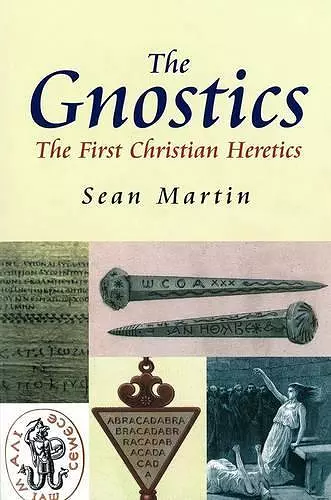A Pocket Essential Short History of The Gnostics
Understanding the Origins and Influence of Gnostic Thought
Format:Paperback
Publisher:Oldcastle Books Ltd
Published:4th Jun '10
Should be back in stock very soon

This concise history explores the origins and beliefs of Gnosticism, highlighting its influence and relevance in modern thought, particularly in A Pocket Essential Short History of The Gnostics.
Gnosticism, derived from the Greek word 'gnosis' meaning 'to know', refers to a collection of religious schools that emerged in the early centuries following Christ. At one point, these beliefs nearly became the predominant form of Christianity. However, many Gnostic tenets can be traced back to ancient Mystery traditions from Greece and Rome. As the Christian church began to establish itself, these Gnostic schools were labeled as heretical, despite some similarities with mainstream Christian beliefs. Gnosticism posits that the material world is flawed, created by a malevolent deity in conflict with the true, benevolent God. It also presents unique views on Christ and Satan, the concept of reincarnation, and the equality of women, elevating the Feminine Aspect of God, referred to as Sophia or Wisdom.
Despite facing significant suppression by the Church by the sixth century, Gnosticism persisted in underground movements such as the Bogomils and the Cathars. Its influence has been felt throughout history, impacting the Renaissance, the Enlightenment, and modern thinkers like Carl Jung and the Existentialists. The movement has also inspired a range of writers, including William Blake, W.B. Yeats, Albert Camus, and Philip K. Dick. In A Pocket Essential Short History of The Gnostics, Sean Martin delves into this rich and varied history, arguing for the ongoing significance of Gnostic thought in contemporary society.
Through a detailed exploration of Gnostic beliefs and their historical context, the book invites readers to reconsider the implications of these ancient teachings. Martin emphasizes that the Gnostics recognized a divine spark within each individual, a potential for liberation from the confines of the material world. This perspective not only challenges established religious norms but also offers a pathway to understanding ourselves and our place in the universe today.
an insightful guide -- Sophie Pearce * The New Statesman *
well written, informative account -- Gary Lachman * The Independent *
Good basic introduction to a fascinating religious belief -- David V Barrett * Fortean Times *
ISBN: 9781842433393
Dimensions: unknown
Weight: unknown
176 pages